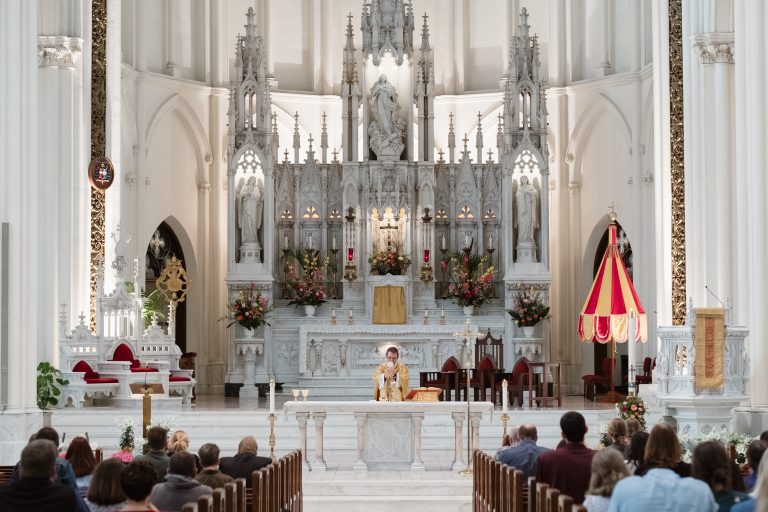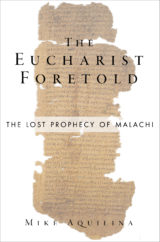By Jim Papandrea
Jim Papandrea is a St. Paul Center Fellow, Catholic professor, author, speaker, and musician. He is currently Professor of Church History and Historical Theology at Garrett-Evangelical Seminary at Northwestern University, as well as a consultant in Adult Faith Formation and a regular speaker in parish and lay formation programs across the Chicago area.

What a blessing, what a privilege, to think of the Eucharist as it is celebrated around the world, and to experience participation in the sacrament. One Mass for the vast diversity of humanity. There is this unity of the body of Christ, no matter where in the world we find ourselves, that we can enter into the mystery of the Mass and be one with all Christians of all times and places, and really participate in the communion of the saints.
In a very real way, the early Church defined itself by the table of the Eucharist. It was both the tangible unity of the mystical body of Christ as well as the very thing that demanded that boundaries be drawn around it—that is the boundaries between orthodoxy and heresy. Jesus said it was a requirement for salvation (John 6:47-58). It remains the unifying factor of the universal Church, in spite of the fact of divisions, and it is still an important aspect of the very identity of Christians.
In The Eucharist Foretold, Mike Aquilina gets to the heart of the matter by getting behind our modern assumptions and biases to really see how the prophecy of Malachi predicts the Church and her most important sacrament. Aquilina shows us how our faith and our Church fit into the long trajectory of humanity’s relationship with God, and how it fulfills God’s desire for that relationship.
The concept of sacrifice is a difficult one—and ironically we often forget the very real connection between the sacrifices of ancient cultures and what it might mean to live a life of sacrifice today. Aquilina beautifully brings all of this together for the reader, and highlights how the concept of sacrifice remains relevant today.
This book brings out the elegant consistency of the Old and New Testaments (not to mention the continuity with the Church fathers) and the astounding fulfillment of prophecy, as long as we are not too used to taking the concept for granted to see how amazing it is. Reading this book makes you want more!
Read the Book

One Old Testament passage seized the imagination of the early Church—and directed Christian hearts and minds toward the Eucharist. It was the oracle of Malachi 1:11, and it was cited (like Isaiah’s Suffering Servant oracles) to prove the identity of the Messiah through His Church and His Sacrament.
In The Eucharist Foretold: The Lost Prophecy of Malachi, Mike Aquilina reveals that the Messiah’s true identity—and the identity of the Eucharist—helps us find our identity as “catholic,” and will lead us to discover our roots in the religion of ancient Israel. To the early Christians, Malachi’s oracle defined who they were individually and as a Church.